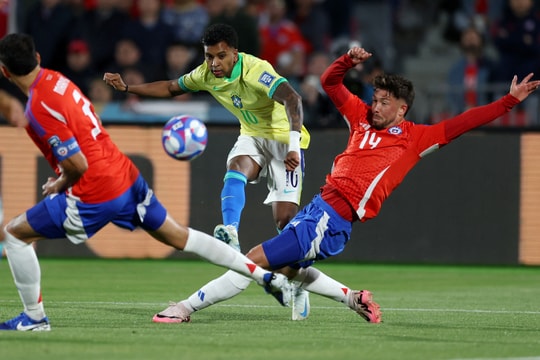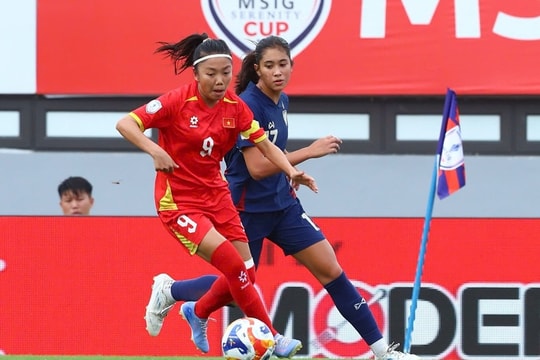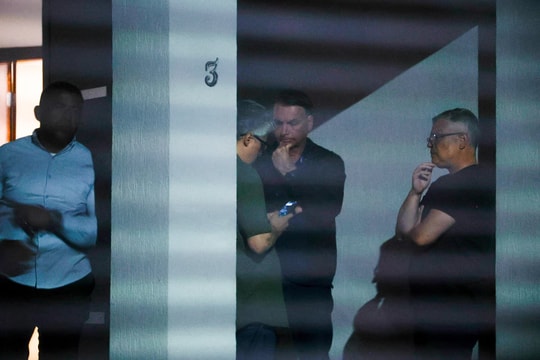Brazil - United States: Strengthening friendship
(Baonghean) - Considered the "Donald Trump" of Brazil, the country's new President Jair Bolsonaro has many similar views to the head of the United States.
Even in many statements since his election last October, Mr. Bolsonaro has affirmed that he will follow President Trump's path. With his ongoing visit to the US, the Brazilian President is gradually realizing his goal of warming up and tightening the alliance between the two sides.
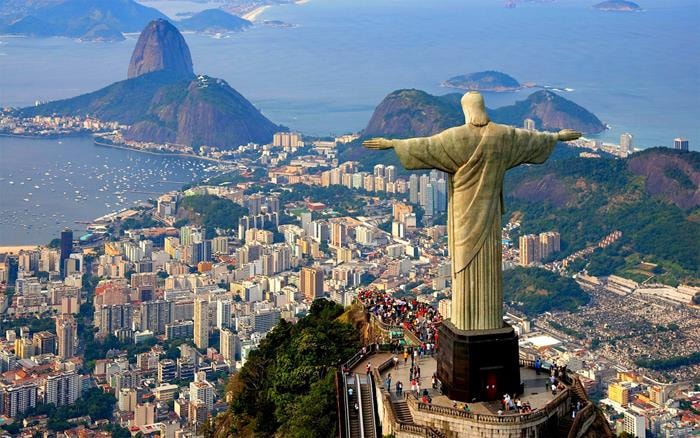 |
| Brazil. Illustration. |
America is the top priority
This visit to the US is the first bilateral foreign trip since Mr. Jair Bolsonaro was elected President of Brazil in October last year and officially took office on January 1st this year. The public is not surprised by the first destination that Mr. Bolsonaro chose. Looking back since taking office, Mr. Bolsonaro has publicly expressed his support for the views and policies of US President Donald Trump in his statements. These include the "America First" policy, the US withdrawal from multilateral organizations and treaties, and most recently, the stance on the Venezuela crisis.
That is why many newspapers have called Mr. Bolsonaro “the Donald Trump of Brazil”. President Bolsonaro also affirmed that he will lead the country in the direction of the current United States and considers President Trump “an example to follow”.
For his part, as soon as Mr. Bolsonaro was elected, President Trump called to congratulate the new Brazilian leader. At Mr. Bolsonaro's inauguration in January, people also saw the appearance of US Secretary of State Mike Pompeo and Israeli Prime Minister Benjamin Netanyahu.
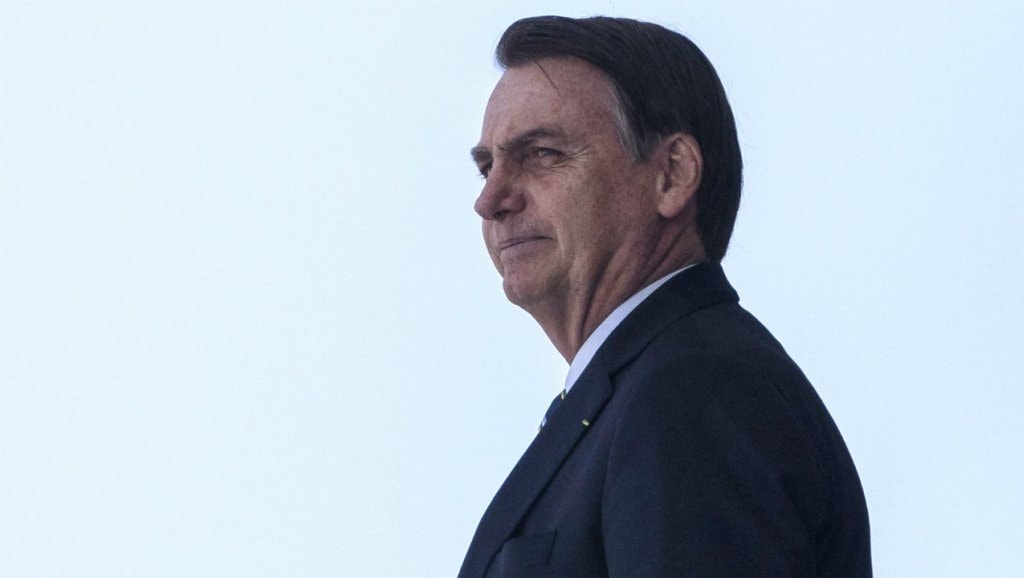 |
| President of BrazilJair Bolsonaroand a trip to the US with many strategic goals. Photo: AFP |
Although he visited Switzerland to attend the 2019 World Economic Forum (WEF) in Davos, Switzerland last January, this US trip is President Bolsonaro's first bilateral visit abroad. A series of cooperation focuses have also been set during this trip. Especially in terms of economy, the US is currently Brazil's second largest trading partner (after China). As the largest economy in Latin America, Brazil has struggled to cope with the economic crisis in recent years. Although there have been some positive forecasts, the country still needs strong investments from leading major partners such as the US. In addition, President Bolsonaro has also repeatedly affirmed that he will prioritize bilateral relations. Therefore, handshakes like those with the US ally will certainly be the top choice for Brazil under the Bolsonaro administration, instead of cooperative institutions such as the South American Common Market - MERCOSUR or the BRICS group of emerging economies (including Brazil, Russia, India, China and South Africa).
Not just economics
In addition to focusing on economic cooperation, President Bolsonaro will certainly seek support from the US in many other issues. First of all, President Bolsonaro is planning to buy drones, and wants to seek US support in technology to destroy criminal gangs, drugs, and corruption that are rampant in this country. In a statement before leaving for the US, President Bolsonaro also said that one of the main purposes of this trip is to sign an agreement allowing the US access to a satellite launch base in Brazil.
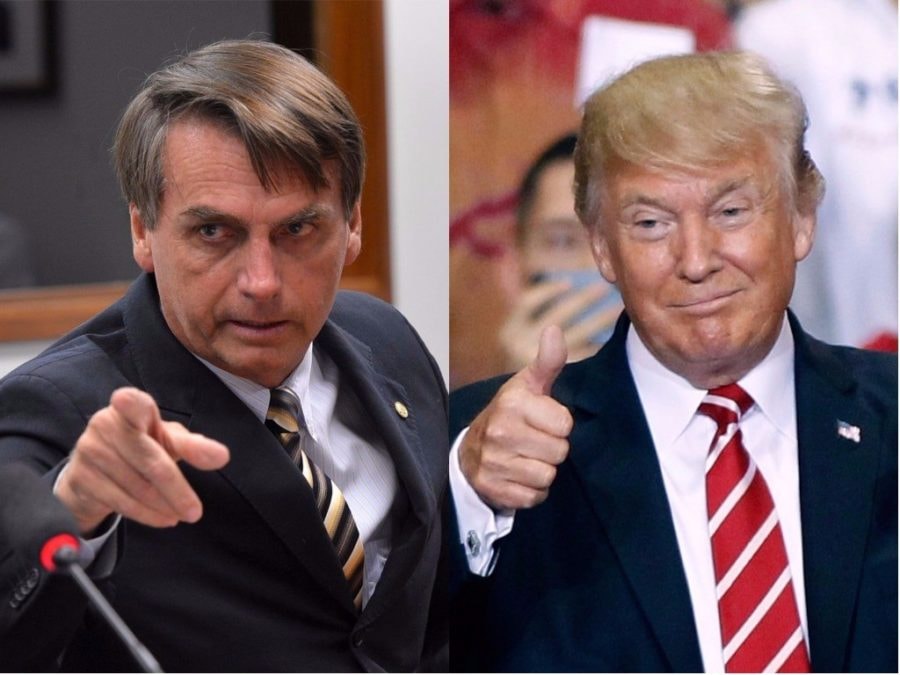 |
| Brazilian President Jair Bolsonaro is likened to "Brazilian Donald Trump" |
In addition, Brazil also wants to find similar voices on a series of foreign affairs issues such as strengthening and increasing pressure on the government of Venezuelan President Nicolas Maduro. Since taking office, Mr. Bolsonaro has always held the view that Russia's support for Mr. Maduro's government is a "worrying" risk that could increase tensions in the region. For Brazil, its northern neighbor Venezuela, which is currently in a severe economic and political crisis, will certainly lead to a wave of mass migration to neighboring countries. Of course, including Brazil! Therefore, in January, when asked by the press whether this concern meant that Brazil would allow the US military to be present in the country, the answer was that Brazil was definitely ready to negotiate on that possibility.
Not only dealing with Venezuela, the two leaders of the US and Brazil may also seek common ground for relations with China. Looking back at the previous period, Brazil shifted its foreign relations to be more friendly and cooperative with China and Russia by actively participating in the BRICS group while distancing itself from the US and the West. Since 2009, China has also surpassed the US to become Brazil's leading trading partner. However, under President Bolsonaro, things may be completely reversed. In a statement, Mr. Bolsonaro emphasized that China was taking advantage of Brazil's difficult economic situation to acquire strategic Brazilian energy companies. And this will not continue under Mr. Bolsonaro.
Meanwhile, for his part, US President Donald Trump will certainly support Brazil’s goodwill so that China will not easily implement its strategy of building its role and influence right in the US’s “backyard”. Of course, this will also be an effective bargaining message from the US towards its top rival in the US-China trade war that has yet to show signs of cooling down.
Internal barriers
In a move to show support for the Trump administration, President Bolsonaro once mentioned the possibility of moving the Brazilian Embassy in Israel from Tel Aviv to Jerusalem, going against the tradition of supporting Palestine for many years. Surely, this content will also be mentioned by the two leaders during the Brazilian President's visit. However, this goal of Mr. Bolsonaro is actually not easy to achieve due to opposition from military officials in the cabinet.
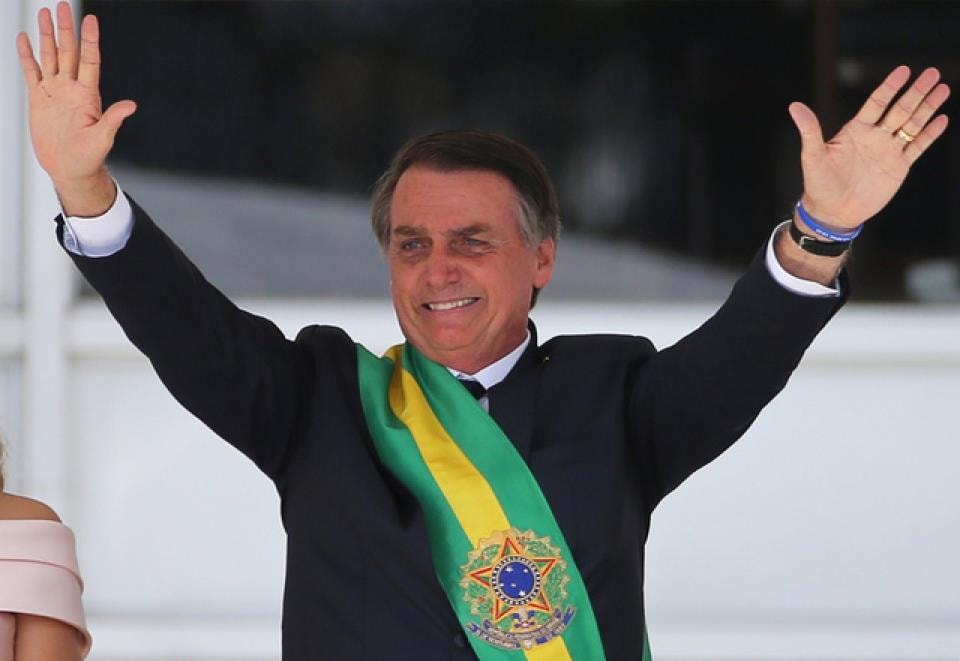 |
| President of BrazilJair BolsonaroSince taking power, he has always supported the views of US President Donald Trump.Photo: Reuters |
Not only that, Brazil's agricultural and industrial sectors have also recently expressed their opposition to moving the embassy. Simply put, this would mean angering Arab countries, which are huge customers of Brazil's meat industry as well as many other agricultural products. Perhaps this explains why, despite his pro-US statements, Mr. Bolsonaro has so far been hesitant to move the country's embassy in Israel to Jerusalem during his visit to Israel scheduled for later this month.
Meanwhile, it should be recalled that last year, amid voters' anger at domestic parties as well as social and political polarization, Mr. Bolsonaro became Brazil's first right-wing president since the dictatorship, after many years of left-wing leadership. Therefore, any wrong move by Mr. Bolsonaro will become the "spearhead" of public opinion. And relations with the US are one of them! For example, Brazil's cancellation of hosting the United Nations Conference on Climate Change (COP 25) as well as its warning to withdraw from the Paris Agreement on climate change have been heavily criticized by domestic environmental activists.
Therefore, it cannot be denied that a series of strategic goals for both the US and Brazil have been set during President Bolsonaro's visit to Brazil. However, balancing internal political views and relations with partners such as the US and China will be a significant challenge that Mr. Bolsonaro must overcome.

